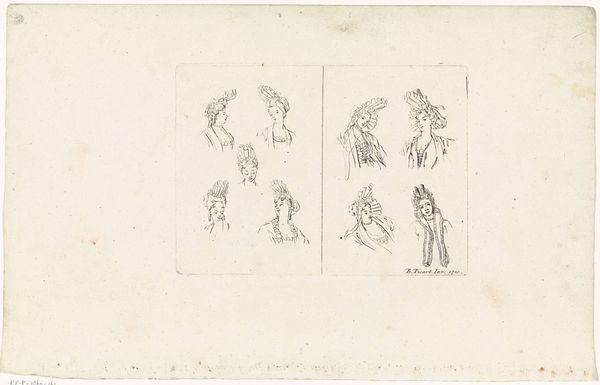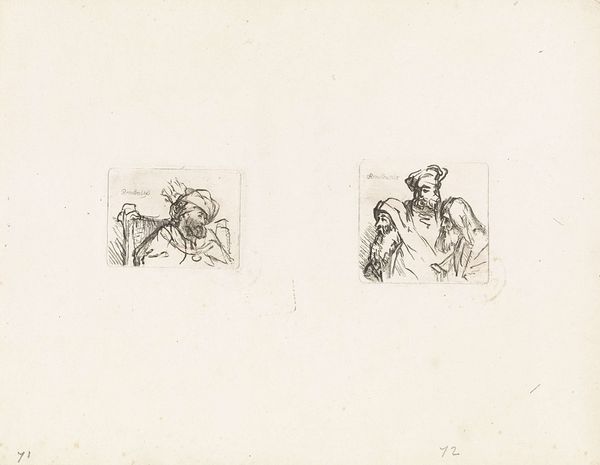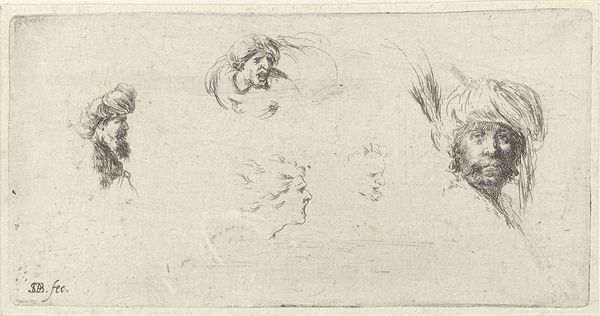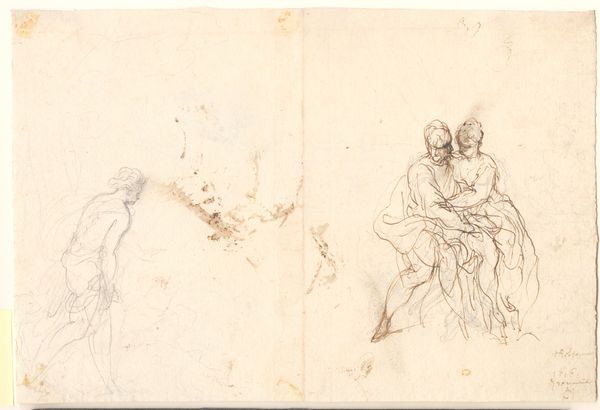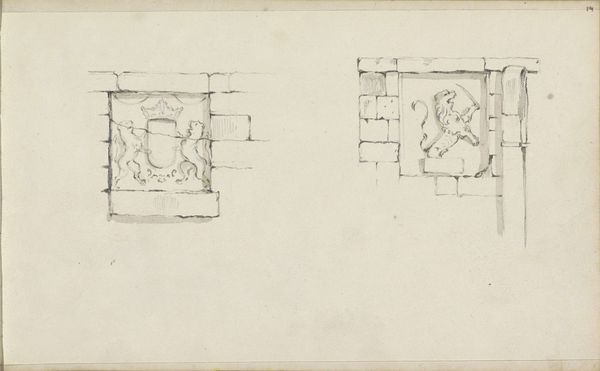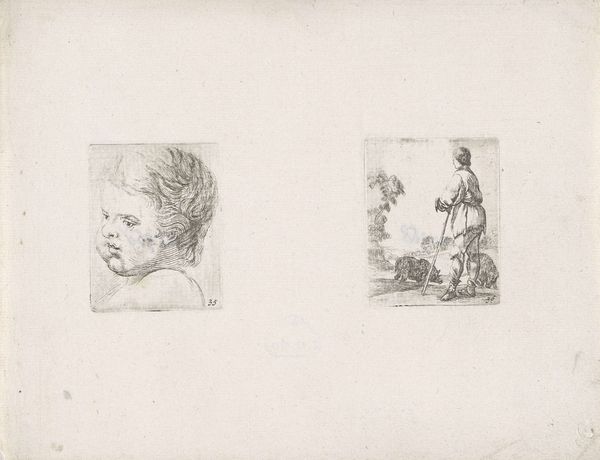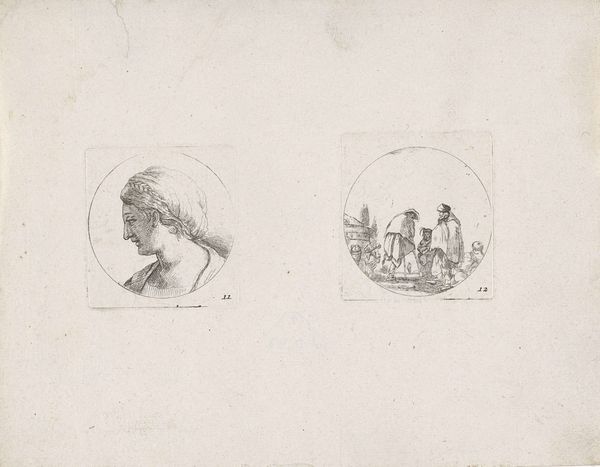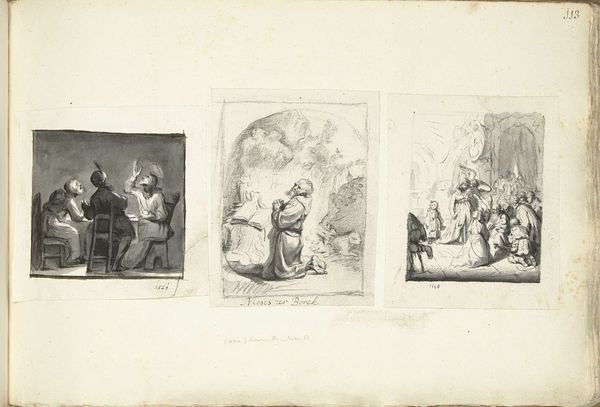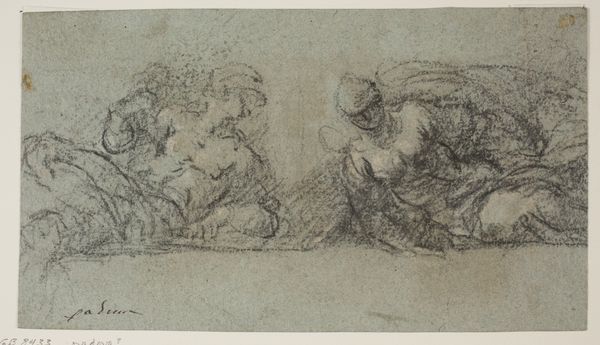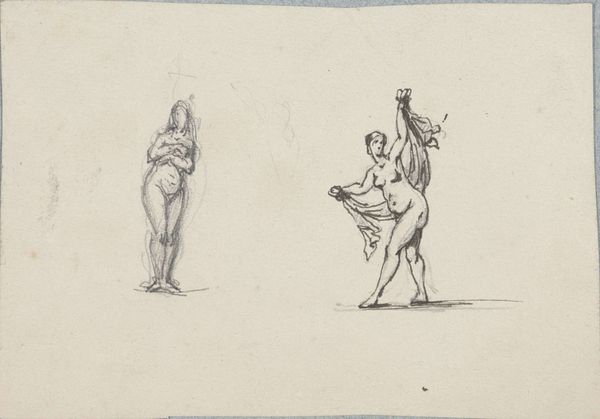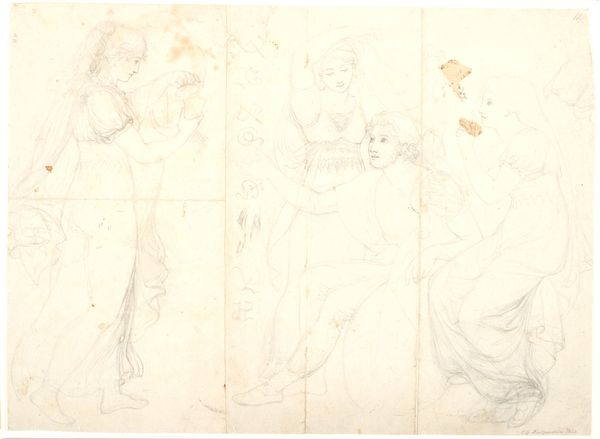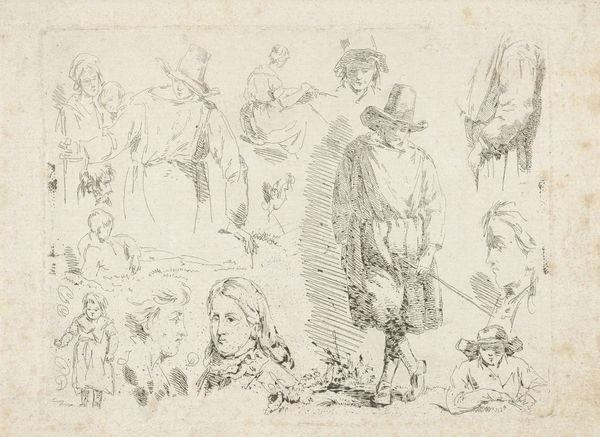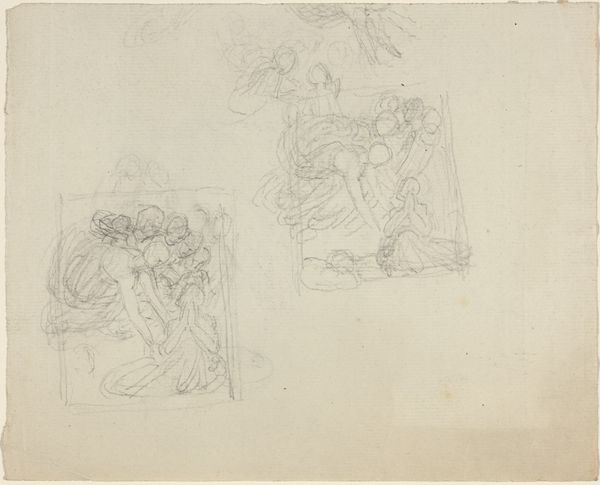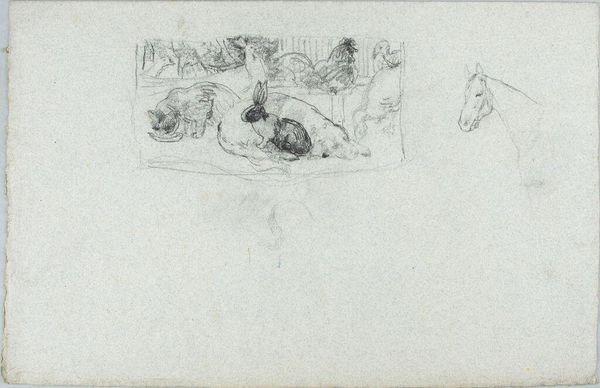
drawing, pencil
#
portrait
#
pencil drawn
#
drawing
#
light pencil work
#
baroque
#
pencil sketch
#
11_renaissance
#
personal sketchbook
#
idea generation sketch
#
child
#
ink drawing experimentation
#
group-portraits
#
pen-ink sketch
#
pencil
#
sketchbook drawing
#
pencil work
#
northern-renaissance
#
sketchbook art
Dimensions: height 48 mm, width 60 mm, height 51 mm, width 60 mm
Copyright: Rijks Museum: Open Domain
Editor: So, this drawing, “Figuren in gesprek en zes kinderhoofden,” from between 1620 and 1664, by an anonymous artist, uses primarily pencil. The whole piece feels really intimate, like peeking into the artist’s personal sketchbook. What strikes you about it? Curator: The juxtaposition of the two groups immediately catches my eye. The figures in conversation seem draped in classical garb. It’s evocative. It hints at narratives of power, of rhetoric. But notice how those children’s heads almost float, a collection of nascent innocence. Do you see the contrast? Editor: Definitely. One is grounded in what feels like a very specific, maybe even historical context, while the other seems…more universal. Less tied to any one place or time? Curator: Precisely! Think about how childhood has been depicted across different eras. These cherubic faces, the soft lines, they recall a certain ideal of innocence. The figures in conversation…they seem burdened, perhaps? By the very conversations they're having, the decisions they must make. Do you get that sense? Editor: I do. It’s like, before knowing language or responsibility, these faces seem to suggest peace, perhaps, where communication has yet to create burdens and instead brings community and strength to one’s identity. Curator: Identity is built on memory. On language. Even those cherubic heads point toward how children’s faces are culturally meaningful and become symbolic representations of innocence itself. It also makes one consider who produced these, their cultural standing, class, gender; that adds even more meaning. What would they mean to the artist who made it, and why? Editor: That’s given me a whole new way to view sketches like this. The juxtaposition is very interesting to think about in those terms. Thanks for that. Curator: It was insightful for me too, looking at familiar works from a fresh vantage.
Comments
No comments
Be the first to comment and join the conversation on the ultimate creative platform.
